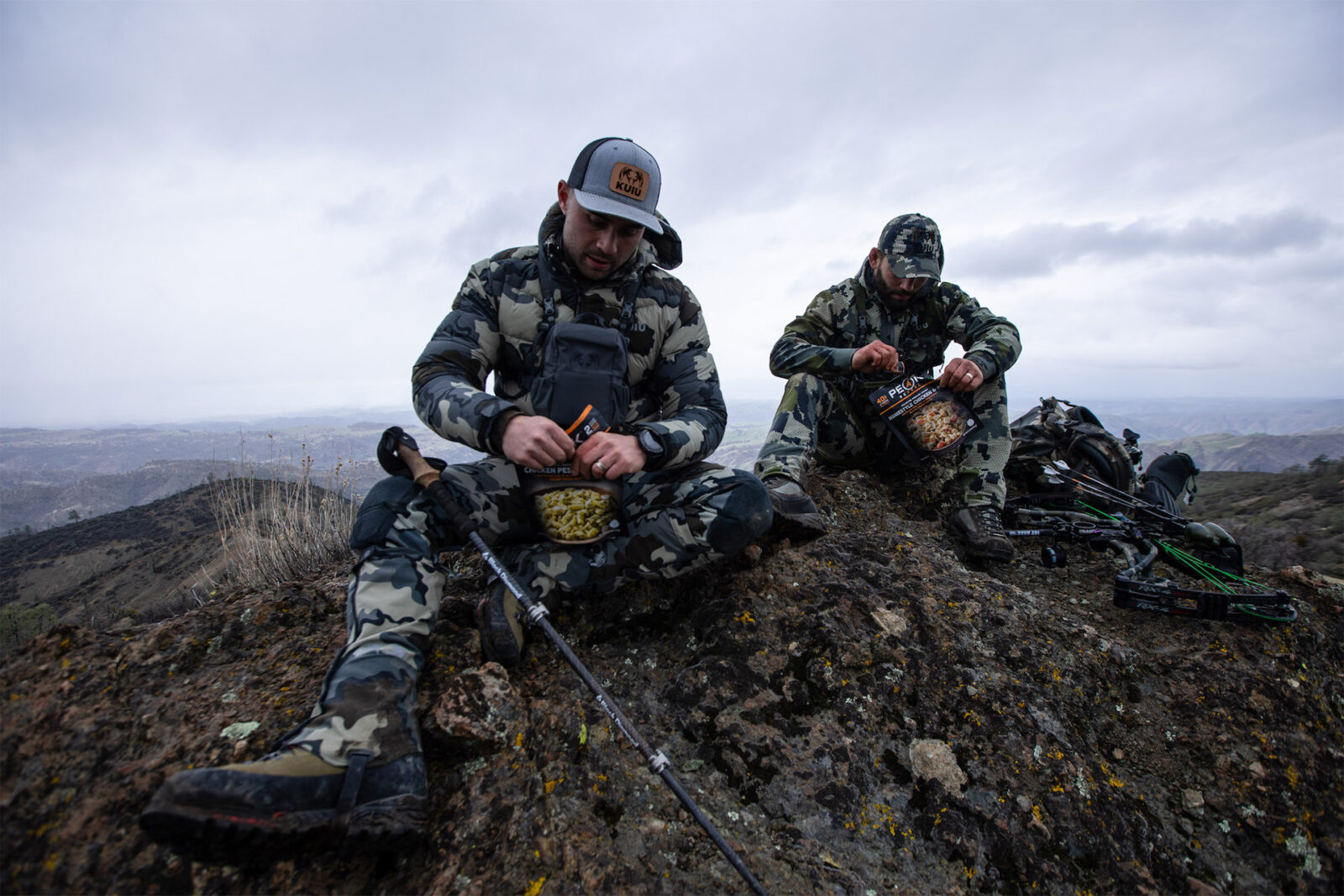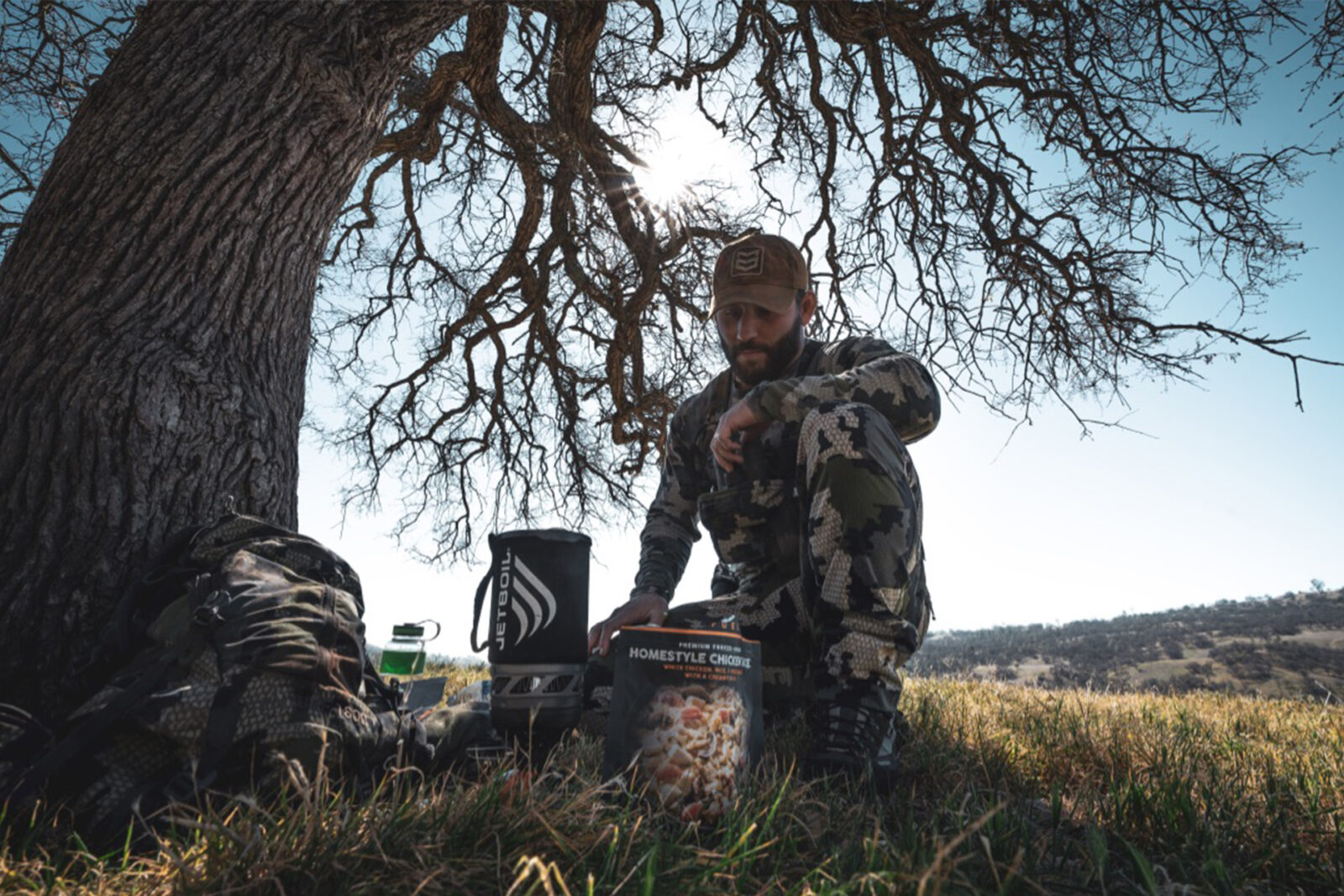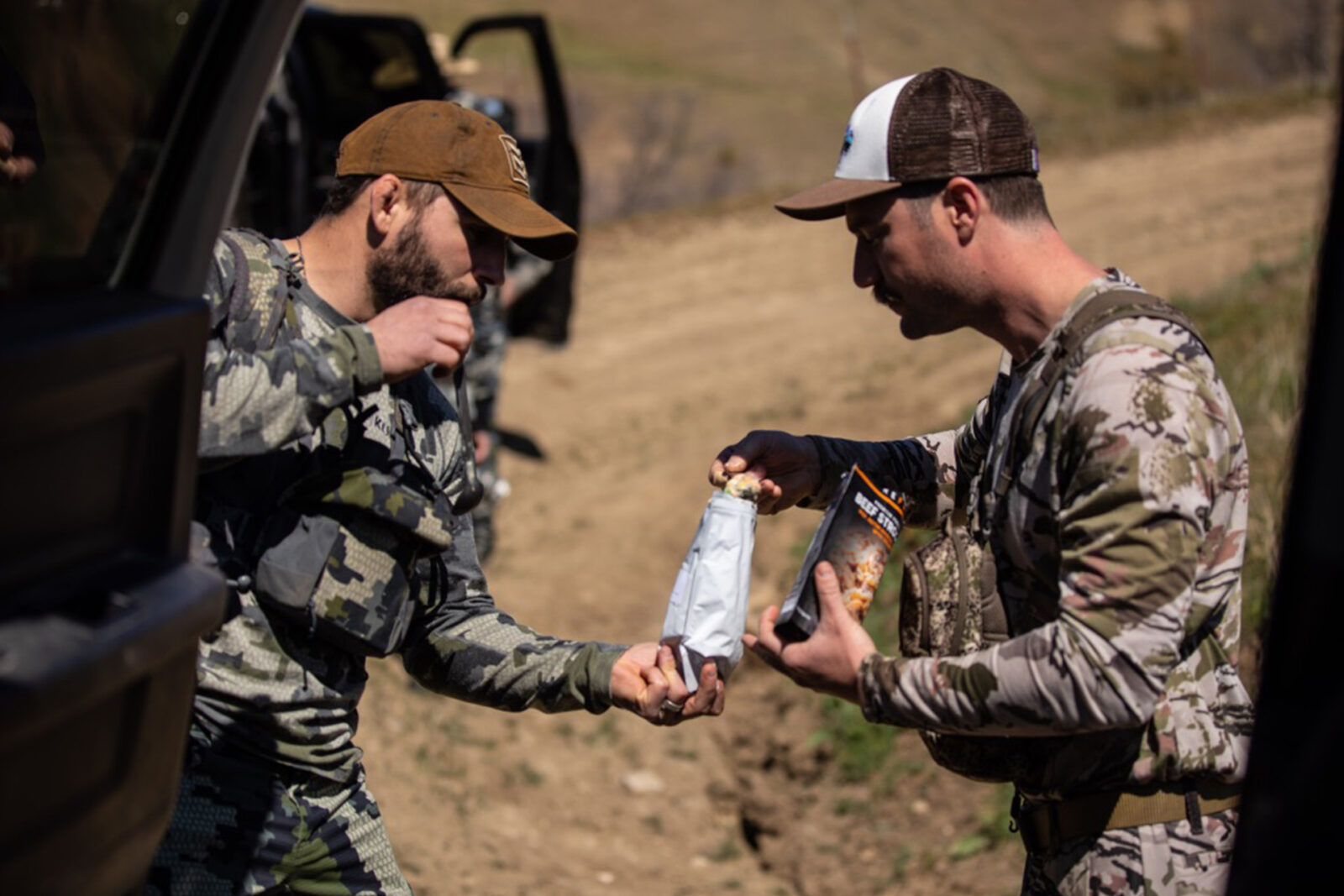Peak Refuel ambassador Sidney Smith talks about maintaining performance with proper protein fueling in the field.
Many hunters pay attention to nutrition and fueling their workouts well leading up to the season. Going to the gym, logging hours on the trail with a weighted pack, watching macros… it’s all part of the buildup to (hopefully) a successful season.
But once the calendar turns to that special day curled in red and we’re actually in the field chasing prey, it’s easy to let that careful balance slip. Gas station food becomes the meal of the day, and quality protein sources can be heavy to pack into the backcountry. We sat down with Peak Refuel ambassador Sidney Smith to talk about macros, protein needs in the field, and how to maintain peak performance during challenging hunts.
onX: Do you think most people over or underestimate their protein needs during training and on hunts?
Sidney: I would say that they underestimate their protein needs as well as their calories. Getting in physical shape for hunting in the backcountry by exercising is very important, but so is fine-tuning your nutrition. It’s a lot like preparing for a marathon: runners practice testing their nutrition for months to find their peak performance for race day. Hunters should be doing the same.

What’s your own rule of thumb for calculating protein needs for training and performance on hunts?
I try to find as much protein, fats, and calories as possible. Sugar/glucose and carbs for those morning bursts to quickly beat others to the hunting spots. Then protein throughout the day to feel fuller, and finish the evening with a protein and calorie-heavy meal to put me to bed. Again, I recommend practicing your nutrition with your hunting training program
What’s your favorite training method to prepare for a challenging backcountry hunt?
Backpacking for a couple of days on long hikes has been the best because it’s very close to the rate your calories are being burned compared to hunting. Also, my stumps in my prosthetics need to get used to carrying the extra weight. Being in the mountains at a higher altitude helps with acclimation come opening day. If the mountains are not nearby, as nerdy as it might seem; wearing a weighted pack doing step-ups or the stairs is a huge benefit.
How do terrain/weather conditions change the way you fuel in the field?
I find my body requires more calories in cooler conditions to try to keep up the fight to stay warm. It also depends on the terrain; more difficult terrain can also require more calories to replenish the calories burned on the trail.

What’s one thing you wish people would understand about fueling their bodies properly during outdoor activity?
Try some of the foods before your hunt. Your body may not respond well to some of the granola bars out there. Nothing is worse than having runs or constipation on the mountain. Drinking more water than you think is also important at the higher elevation, even when it’s very cool outside you have to drink.
Favorite Peak meal on a long hunt?
That’s a hard one, so I have narrowed it down to two. Biscuits and Gravy because it’s that mother’s comfort food that would work well for breakfast, lunch, and dinner. Also, I would say the Homestyle Chicken and Rice; you really can’t mess that meal up no matter how badly you may suck at boiling water.
